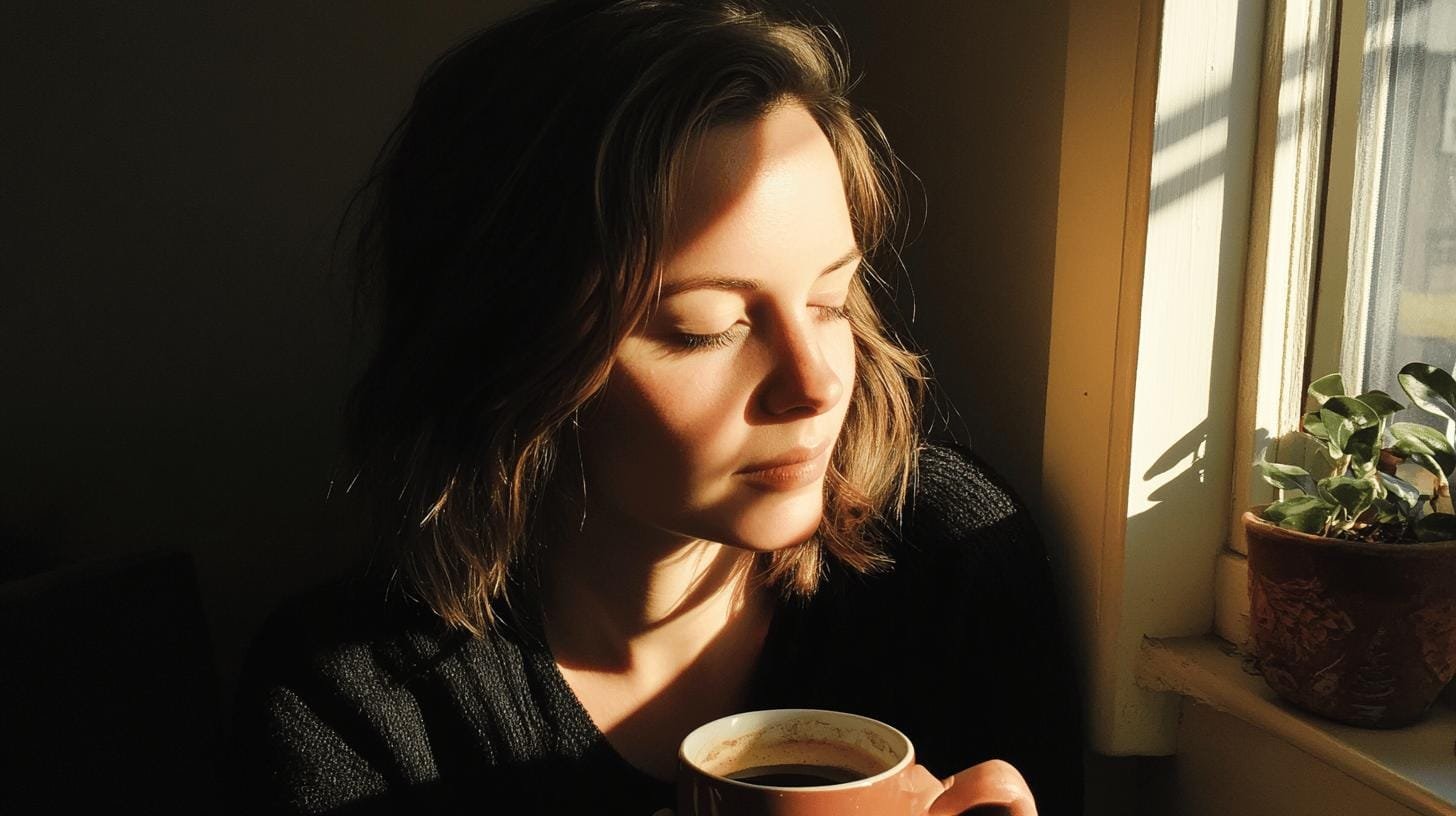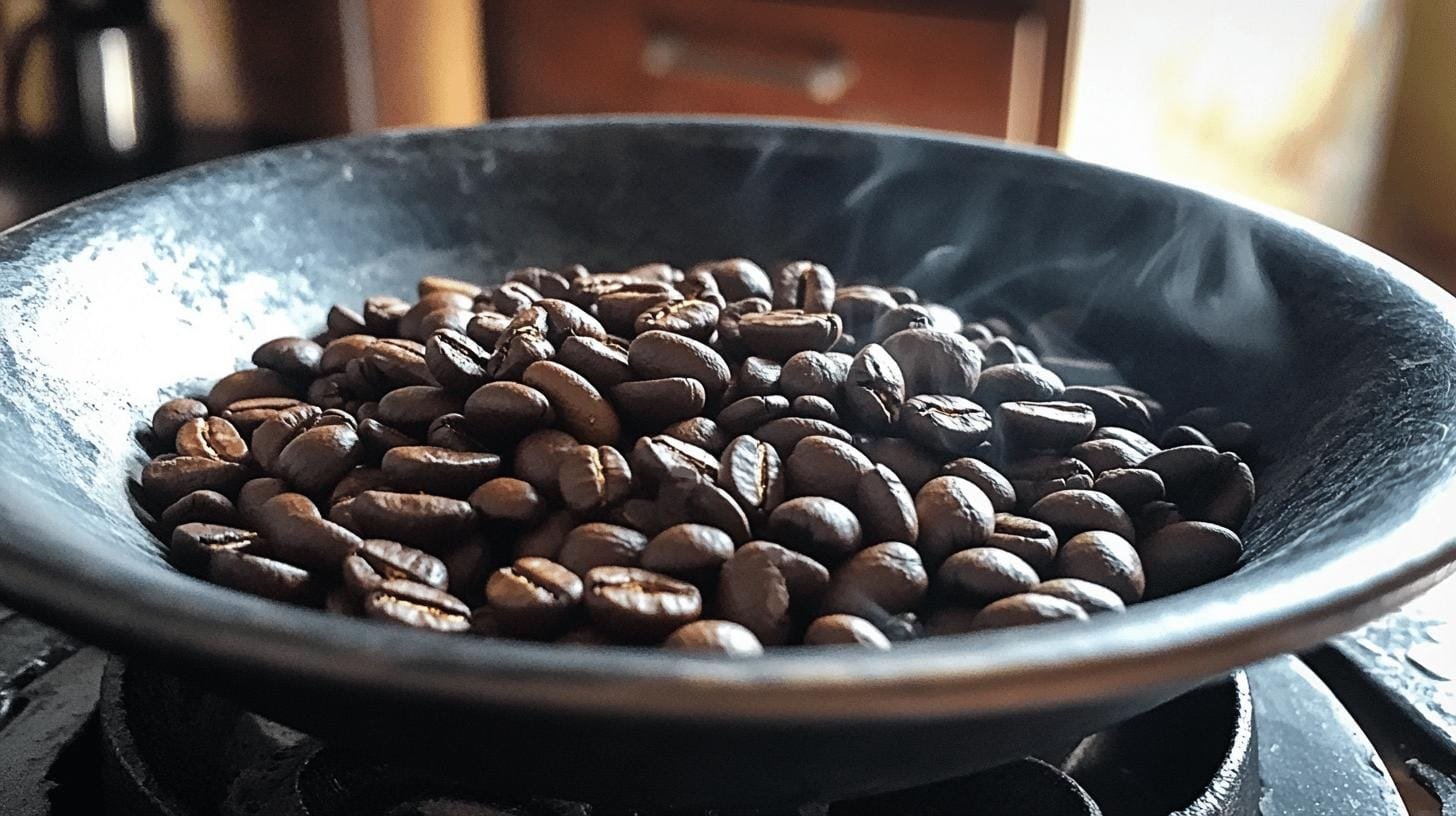
Artisanal Rituals for a Memorable Customer Experience
How can brands create a more balanced and memorable customer experience by blending artisanal product quality with thoughtful everyday rituals that keep people coming back?

Considering switching to decaf coffee, but hesitant about what it might entail? Transitioning to decaf can bring about noticeable changes in your daily routine, both physically and psychologically. As you say goodbye to the hefty caffeine kick of regular coffee, you might encounter withdrawal symptoms such as headaches, fatigue, or irritability.
Yet, many embrace the switch for the promise of improved sleep and reduced anxiety. Decaf coffee, containing a mere 2-5 mg of caffeine per cup, may be the balance you’re seeking. Understanding what happens when you switch to decaf coffee is essential for a smoother transition.
Switching to decaf coffee is usually a choice made to cut caffeine while still enjoying coffee. Some people opt for decaf to sleep better or feel less anxious. Caffeine can mess up sleep and make you restless. A regular decaf cup holds only 2-5 mg of caffeine per 8-ounce serving, compared to the 95 mg in regular coffee. This makes it appealing to those affected by caffeine’s effects.
However, switching to decaf might cause withdrawal symptoms as your body adapts to less caffeine. Common symptoms are headaches, tiredness, irritability, and difficulty focusing. They usually start 12 to 48 hours after the caffeine cut and may last from a few days to a week. Although uncomfortable, these symptoms are temporary and part of the body’s adjustment process.
Despite the initial discomfort, many people notice positive changes once they switch to decaf. They often report better sleep and lower anxiety. Without caffeine’s stimulating effects, people feel more relaxed and keep a regular sleep schedule. As your body balances out, you might experience an overall sense of well-being.

Decaf coffee still contains antioxidants, which are crucial for preventing oxidative stress and related health issues. These antioxidants protect the heart and lower the risk of Type 2 diabetes, just like regular coffee. By choosing decaf, you can enjoy these health benefits without caffeine’s stimulation. This makes decaf a great choice for maintaining health with less caffeine.
| Health Benefit | Description |
|---|---|
| Reduced Anxiety | Lower caffeine levels lessen anxiety and promote relaxation. |
| Improved Sleep | Decaf helps with better sleep quality by not disturbing sleep. |
| Heart Protection | Antioxidants in decaf reduce heart disease risk. |
| Diabetes Risk Reduction | Ongoing coffee drinking helps guard against Type 2 diabetes. |
Personal stories usually highlight more stable energy levels after switching to decaf. Without caffeine, people often experience less disruption to their daily routines, leading to consistent energy throughout the day. Studies back up these observations, showing that cutting caffeine leads to a more balanced lifestyle. This can result in improved overall well-being and satisfaction.
Caffeine withdrawal often begins 12 to 48 hours after the last caffeine intake, marking the start of adjusting to no caffeine. The symptoms can last from a few days to a week. Heavy coffee drinkers may find their withdrawal symptoms are more intense. Knowing this timeline is important for managing expectations during the switch.
The severity of withdrawal symptoms depends on how much caffeine you used to have and your sensitivity to it. Common symptoms like headaches, fatigue, and mood swings are usually worse for heavy caffeine users. Your body’s reliance on caffeine for alertness and energy makes this period challenging.
Tolerance to caffeine over time means withdrawals feel more intense when you cut back or stop.
Being prepared makes the switch to a caffeine-free lifestyle easier. By anticipating challenges, you make the decaf switch smoother and easier to handle.

How does decaf coffee taste compared to regular? Decaf coffee may taste slightly different due to the decaffeination process, which can remove some natural oils and compounds, affecting flavor. So, decaf might lack the depth found in regular coffee, resulting in a more muted flavor experience.
Despite potential taste changes, many high-quality decaf options taste closely like regular coffee. Specialty decaf products use methods like the Swiss Water Process to preserve more of the original flavors. These options focus on keeping the bean’s natural taste, offering a satisfying cup for those seeking a caffeine-free alternative.
What should you expect when switching to decaf coffee? Expect a period of adjustment as your body adapts to less caffeine, with withdrawal symptoms like headaches expected to pass within a week. Knowing about this transition helps manage expectations and reduces the urge to go back to caffeinated drinks.
Gradual reduction can help to minimize withdrawal symptoms.
| Tip | Description |
|---|---|
| Mix Regular and Decaf | Start with a blend to gradually lower caffeine intake. |
| Choose Quality Decaf | Pick decaf that preserves flavor, like Swiss Water. |
| Stay Hydrated | Drink water to reduce headaches and keep energy. |
| Monitor Sleep Patterns | Maintain consistent sleep to support the change. |

Key factors that defines a high-quality decaf coffee include the decaffeination process and flavor preservation. The Swiss Water Process uses water, temperature, and time to remove caffeine without chemicals, keeping the coffee’s natural flavors. Similarly, the CO2 Process uses carbon dioxide to keep the coffee’s original taste. These methods are preferred for a true coffee experience.
Home-roasting offers more control over coffee bean freshness and flavor, often leading to better taste compared to mass-produced options. By selecting high-quality raw coffee beans and roasting them, you can tailor the flavor to your preference. In contrast, big brands may focus on quantity over quality, affecting flavor and freshness.
The bean’s origin and roasting method greatly influence taste. Beans from top regions like Ethiopia and Colombia usually have richer flavors. The roasting process must balance the bean’s inherent flavors and aromas. Focusing on these factors ensures your decaf coffee stays full-bodied and flavorful.
Switching to decaf coffee initiates notable physical and psychological shifts, expressing both challenging and rewarding aspects. The shift can initially bring about withdrawal symptoms like headaches and fatigue, but these are typically short-lived. Overcoming these symptoms leads to benefits such as improved sleep quality and reduced anxiety levels for many.
Throughout this process, understanding the health benefits, managing withdrawal effectively, and adapting taste preferences are crucial. Quality decaf options ensure enjoyment remains intact. Overall, transitioning to decaf coffee can provide a balanced caffeine experience, aligning health benefits with personal taste preferences.
Switching to decaf coffee can cause symptoms like headaches, fatigue, irritability, and difficulty concentrating. These usually last a few days to a week. Positive effects include improved sleep and reduced anxiety.
Yes, switching to decaf coffee can be beneficial. It may lead to increased energy stability, fewer caffeine-related disruptions, and help reduce anxiety while still providing antioxidants beneficial for heart health.
Most common side effects of decaf coffee include mild withdrawal symptoms from reduced caffeine. These might manifest as headaches, irritability, and fatigue but generally diminish quickly.
Yes, switching to decaf coffee can reduce anxiety due to lower caffeine content, promoting a calmer state and may assist in lowering stress-induced symptoms.
The decaffeination process can alter flavor, but high-quality decaf options closely mimic regular coffee’s taste. Factors affecting taste include bean quality, decaffeination method, freshness, and roast level.

How can brands create a more balanced and memorable customer experience by blending artisanal product quality with thoughtful everyday rituals that keep people coming back?

Independent coffee shops have always been about more than caffeine—they’re hubs of creativity, connection, and care. As café culture continues to evolve, new trends are

Introduction Independent cafes win when they feel like the neighborhood’s living room and operate with the discipline of a great kitchen. Below is a quick

Discover how top specialty coffee brands create lasting loyalty through storytelling, sourcing, and community connection. Real tips from 6 industry experts.

Discover the ultimate showdown between two beloved coffee brewing methods: the French press and Chemex. Explore how each technique caters to distinct palates, with the French press delivering bold flavors and the Chemex presenting a bright, clean taste.

Unlock the secrets to brewing the perfect cup of coffee with our comprehensive guide on using a coffee scale. Discover how precise measurements enhance flavor and consistency while eliminating bitterness.

Discover how water temperature plays a vital role in brewing the perfect cup of coffee. This article delves into the ideal temperature range of 195°F to 205°F for optimal flavor extraction, enhancing the enjoyment of high-quality beans.

Discover the world of curated specialty coffee bundles, perfect for enthusiasts seeking quality and craftsmanship. This article explores the benefits of ethically sourced, small-batch beans from brands like Equipoise Coffee, offering diverse flavor profiles that elevate your brewing experience.

Discover the art of manual brewing to elevate your coffee experience! This article explores various techniques like pour-over, French press, and AeroPress, revealing how they enhance flavor and your connection to every cup.